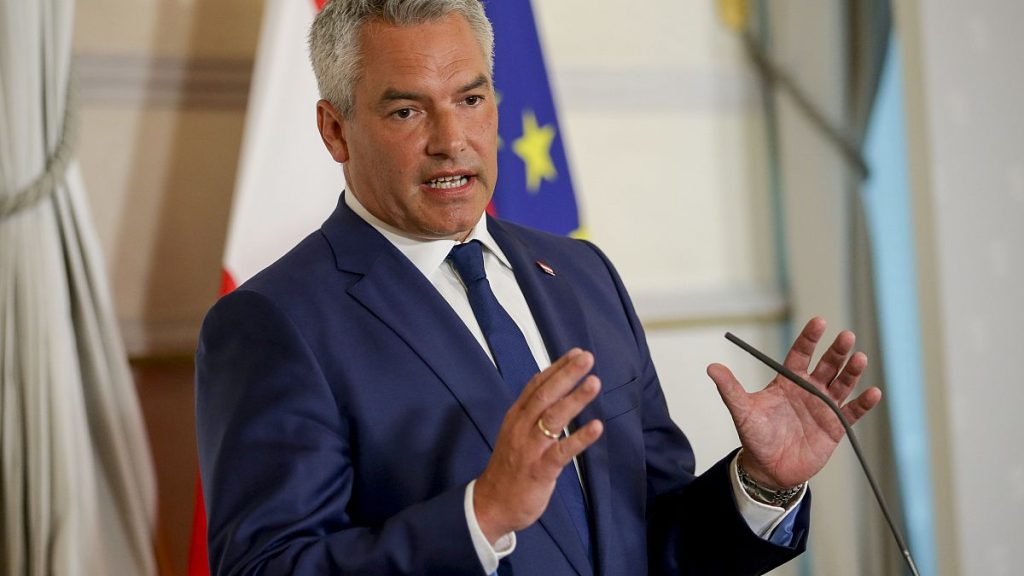The Austrian political landscape has been thrown into disarray following the collapse of coalition talks, leaving the nation teetering on the brink of a fresh election. Chancellor Karl Nehammer, leader of the conservative Austrian People’s Party (ÖVP), announced the termination of negotiations with the Social Democrats (SPÖ), citing irreconcilable differences on key policy issues. This breakdown follows the earlier withdrawal of the liberal Neos party, further complicating the already challenging task of forming a government. The failed negotiations underscore the deep divisions within Austrian politics and the difficulty of forging a stable coalition in the wake of the September elections, which saw the right-wing Freedom Party (FPÖ) emerge as the largest party.
The initial election results presented a complex scenario, with the FPÖ securing a significant victory but facing widespread resistance from other parties unwilling to collaborate with its controversial leader, Herbert Kickl. This resistance stemmed from concerns about Kickl’s hardline stance on immigration and his past association with far-right movements. The unwillingness of other parties to engage with the FPÖ forced the ÖVP and SPÖ, traditional rivals, to explore the possibility of a coalition government, requiring the support of a smaller party to secure a parliamentary majority. Neos initially joined the talks, raising hopes of a three-party coalition, but these hopes were quickly dashed as negotiations faltered.
The collapse of the coalition talks can be attributed to several factors. Neos leader Beate Meinl-Reisinger pointed to the lack of progress on “fundamental reforms” as a key reason for their withdrawal. While the specifics of these disagreements remain somewhat unclear, they likely revolve around issues such as economic policy, social welfare programs, and Austria’s approach to the European Union. The inability of the ÖVP and SPÖ to bridge their own differences further compounded the situation, ultimately leading Nehammer to declare the talks unproductive.
The prospect of a fresh election looms large over Austria, a scenario welcomed by the FPÖ, which has seen its support grow in recent polls. A December survey conducted for the newspaper Der Standard indicated a surge in support for the FPÖ, reaching 35% among prospective voters. This rise in popularity likely reflects growing public dissatisfaction with the political deadlock and a potential shift towards more conservative and nationalist sentiment. A new election, however, offers no guarantee of a more decisive outcome and could further exacerbate the existing political fragmentation.
The failed coalition talks highlight the challenges facing Austrian democracy. The rise of the FPÖ, coupled with the inability of traditional parties to form stable coalitions, reflects a broader trend of political polarization and the increasing appeal of populist movements. The prospect of a fresh election raises concerns about the future direction of Austrian politics and the potential for further instability. The outcome of any future election will have significant implications not only for Austria but also for the broader European political landscape.
The current situation in Austria underscores the complexities of coalition politics and the challenges of governing in an increasingly fragmented political environment. The failure to form a stable government has left Austria in a state of political limbo, with the prospect of another election adding to the uncertainty. The outcome of any future election will be crucial in determining the direction of the country and its role within the European Union. The rise of the FPÖ and its potential influence on future governments raises important questions about the future of Austrian politics and the country’s stance on key issues such as immigration, integration, and European cooperation.

